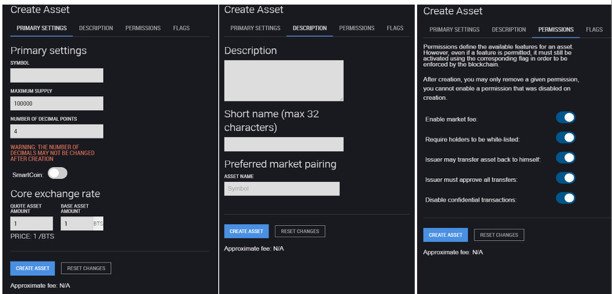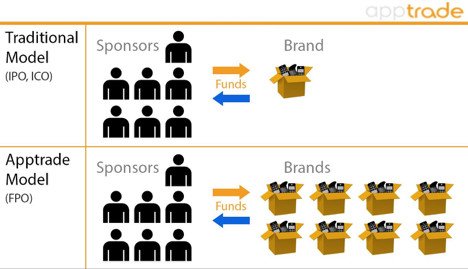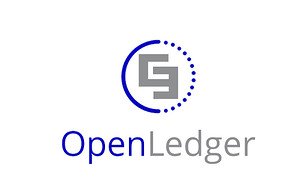Don't Wait For NASDAQ, Go Public Now!
OpenLedger DEX and Apptrade To Bring Value To New Markets WIth Regulation - Compatible Digital Assets.
The OpenLedger Dentralized Exchange (DEX), that runs on the Bitshares blockchain, provides a feature known as "user-issued assets" that can facilitate profitable business models using company profits and other revenue streams to “collateralize” OIUs. The term, UIA, refers to a type of custom token registered on the OpenLedger platform, which users can hold and trade within certain restrictions. The creator of such a token publically names, describes, and distributes it. Token creators can specify customized requirements, such as an approved whitelist of accounts permitted to hold the tokens. BitShares allows individuals and companies to issue their own tokens for anything they can imagine. Using UIAs, hedge funds may launch digital funds. Backing those digital funds with revenue streams from an inventory of assets ( real estate, jewlery, etc).
Blockchain asset creation and trading
Screenshot of OpenLedger’s turnkey asset creation suite.
OpenLedger (DEX) Decentralised Exchange is a cryptocurrency trading platform that has no central bank or exchange holding customer funds. A decentralized exchange has no central custodian, such as an institution, that is in control of your account. All users keep their private keys offline, keeping complete control of their funds.
In the case of Apptrade’s business model, Apptrade is interested in creating a peripheral marketplace exclusively comprised of standardised UIAs, backed by app revenues, also powered by Bitshares. Apptrade will service app developers and other content creators with funding through app portfolio incubation.
Strength in numbers
App portfolios, as distributional platforms, host multiple app brands. The fusion of crowd marketing and collaborative funding creates a new alternative group contract that allows individuals to pool their own resources into a shared digital reserve. Used as a collateral, the reserve is comprised of digital tokens created from the OpenLedger DEX. Royalty streams are secured in cryptoassets on the blockchain.
The types of token sales that are facilitated by OpenLedger and Apptrade respectfully are broken in 2 categories:
1. Initial Coin Offering (ICO), brands seeking funding through the cryptocurrency community. In return community would get a share of future profits from independent brand.
2. Federated Public Offering (simply FPO) is a portfolio of digital brands seeking funding under one token sale. Tokens are sold to the cryptocurrency community in return for access to earnings pooled from the portfolio.
No equity or debt is extracted from the participating group. The requirement of the group is a portion of proceeds ( details about fee tiers coming soon) and a request to have digital properties up to date.
The universal policy and business structure of FPOs are standardized. Leaving little room for ambiguity. FPOS on Apptrade will feature the same rules for their buybacks unless otherwise stated by token sellers.
In the near future Apptrade’s marketplace will streamline the process of launching ICOs and FPOS after getting their master token off the ground. This includes the first few flagship portfolios that will set the tone for the marketplace.
Ronny Boesing, CEO of OpenLedger, adds, “Having universal standards offers our token sellers and holders a level playing field for accessing value.”
“Launching a coin sale should be as seamless as launching a kickstarter campaign.” Says Daniel Pineda, founder and CEO of Apptrades app portfolio marketplace. Mr Pineda continues, “ICOs and FPOs allow brands to raise capital without giving up equity."
Regulatory Compliance
The regulations that apply to each kind of token vary widely, and are often different in every jurisdiction. The underlying technology of OpenLedger DEX, BitShares, provides the tools to allow token sellers to remain compliant with all applicable regulations when issuing assets.
With BitShares, it is now possible to move internal legacy databases onto the blockchain where deposits can be used with other smart contracts such as the internal markets, escrow, or bonds. App portfolios are such digital “bonds” that collateralised royalty streams on a blockchain.
Here are the top compliancy features that regulators require of those who wish to issue digital receipts or tokens.
- Know Your Customer KYC-
The issuer must know every single customer. BitShares supports this by enabling both whitelists and blacklists. Rather than requiring every issuer to whitelist every customer separately, an issuer may specify a set of identity verifiers that they trust to do this job. This allows issuers to benefit from the network effect of validated users without having to do any direct identity verification themselves.
Apptrade handles identity verification of token buyers and app publishers. Openledger also has their own due diligence they conduct to approve the flow of identities arriving on their site.
When an asset enables whitelists, as Apptrade tokens do, no account may send or receive that asset without being on that authorized whitelist. An accounts funds can be frozen by removing them from the whitelist.
- Asset Seizing
From time to time, an issuer may be required to seize funds as a result of a court order. While this may be unappealing to cryptocurrency purists, it is an unavoidable reality of trust-based assets. An issuer can determine whether or not they wish to revoke this privilege, but it may be a requirement in some jurisdictions.
- Market Restriction
An issuer who offers both USD and EUR deposits may need to restrict direct trading between their USD and EUR assets to avoid being subject to foreign currency exchange regulations. Some cryptocurrency exchanges allow trading between fiat and cryptocurrencies, but not between two fiat currencies. Without this feature, many exchanges would be unable to issue their assets on the BitShares blockchain.
- Transfer Restrictions
A transfer-restricted asset allows the holders of the asset to trade it in the markets but not transfer it from person to person. Only a few cryptocurrency exchanges allow user-to-user transfer of funds outside the market, because this particular activity is often subject to a different set of money transmission regulations.
The deposit receipt example is probably one of the most important, and yet most heavily regulated, use cases of user-issued assets. However, all UIAs created through Open Ledger are compliant-ready and have these controls programmed into the code of all tokens on Apptrade’s app portfolio marketplace.
Once set, parameters that are in place cannot be altered by their creators.
Privatized SmartCoins (Price-Stable Cryptocurrencies) To store reserve earnings, users can use a price-stable currency, such as Bit.USD or Bit.GOLD, to store and exchange wealth on a decentralized exchange. Read more about how price controlled cryptocurrencies work: https://bitshares.org/technology/price-stable-cryptocurrencies/
Summary: Security and compliance is the top concern. There are 3 layers of compliancy present; one at the level of the code, then at the level of OpenLedger's KYC ID validation, and finally Apptrade’s own due diligence of verifying token buyers and app publishers.
Apptrade sees a world where financial institutions could emulate existing models like real estate investment trusts. Once institutional funds prove their own models on the blockchain, they may move on to issuing mortgage and insurance products, bundled with digital goods. The possible use cases are endless. Investors and entrepreneurs can do business in more innovative ways. Our mission is to improve the access to value for content creators worldwide. Backing tokens with app revenues was once a theory but now it is a legitimate model for collaborative funding. Apptrade’s model of open innovation is only possible now with the advent of the Bitshares fueled OpenLedger DEX.
Yours sincerely,
Ronny Boesing and OpenLedger ApS Team
Don't forget to join OpenLedger Lab Slack Channel
Follow OpenLedger on socials
Please find below references to previous projects already powered by the digital token ICOO an its Economic Enterprise Enterprise Engine: Crowdfunding 3.0
Blockchain 'Crypto' Crowdfunding Phenomenon Primed For Industry Disruption & Beyond
Crypto Financial Platform OpenLedger Goes 'Wall Street' With New ICO Investments
This start up is about to revolutionize how billions in retail dollars are spent







In which state do you suggest to incorporate prior to an ICO ?
Does it matter ?
Can you go for an ICO before to be incorporated ?
Apptrade is using OpenLedger domiciled in Denmark as its safe haven and may well end up having its regulatory domicile in Europe if neeeded in order to run the best way possible. It is however the aim to do all possible to evenually be set up in the US and is therefore created with this in mind as part of its fundamental structure.
This post has been ranked within the top 25 most undervalued posts in the second half of Jan 03. We estimate that this post is undervalued by $10.79 as compared to a scenario in which every voter had an equal say.
See the full rankings and details in The Daily Tribune: Jan 03 - Part II. You can also read about some of our methodology, data analysis and technical details in our initial post.
If you are the author and would prefer not to receive these comments, simply reply "Stop" to this comment.